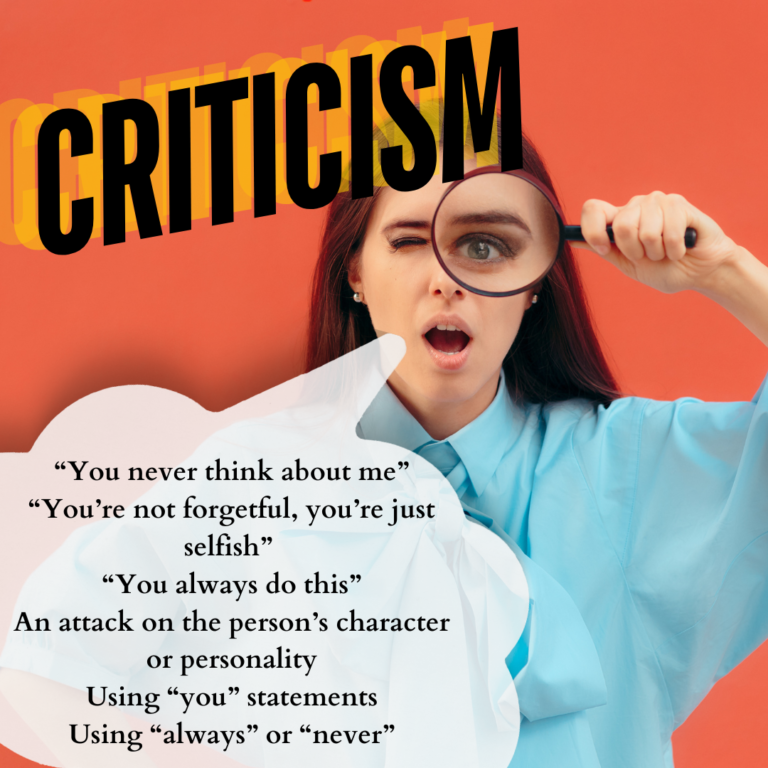Relationships
Attachment Style
Attachment style profoundly impacts an individual's relationships, self-perception, and emotional well-being.
Attachment style refers to how we form emotional bonds and interact in relationships - shaped by early interactions with caregivers.
Understanding your attachment style will provide insights into your relationship behaviors and patterns. There are four main attachment styles: secure, anxious, avoidant, and disorganized.
Knowing your attachment style will help with recognize your strengths and areas for growth. It can improve communication, foster healthier connections, and enhance self-awareness, leading to more fulfilling and stable relationships.
Click Here to learn your attachment style
Books

The Seven Principles for Making Marriage Work
Author : John M. Gottman, PH.D., and Nan Silver
The Seven Principles for Making Marriage Work has revolutionized the way we understand, repair, and strengthen marriages. John Gottman’s unprecedented study of couples over a period of years has allowed him to observe the habits that can make—and break—a marriage. Here is the culmination of that work: the seven principles that guide couples on a path toward a harmonious and long-lasting relationship.
Straightforward yet profound, these principles teach partners new approaches for resolving conflicts, creating new common ground, and achieving greater levels of intimacy. Gottman offers strategies and resources to help couples collaborate more effectively to resolve any problem, whether dealing with issues related to sex, money, religion, work, family, or anything else.
Packed with new exercises and the latest research out of the esteemed Gottman Institute, this revised edition of The Seven Principles for Making Marriage Work is the definitive guide for anyone who wants their relationship to attain its highest potential.

Hold Me Tight: Your Guide to the Most Successful Approach to Building Loving Relationships
Author : Dr. Sue Johnson
This idea, once controversial, is now supported by science, and has become widely popular among therapists around the world. In Hold Me Tight, Dr. Sue Johnson presents Emotionally Focused Therapy to the general public for the first time. Johnson teaches that the way to save and enrich a relationship is to reestablish safe emotional connection and preserve the attachment bond. With this in mind, she focuses on key moments in a relationship-from “Recognizing the Demon Dialogue” to “Revisiting a Rocky Moment” — and uses them as touch points for seven healing conversations.

Attached. The New Science of Adult Attachment and How it Can Help you find - And Keep - Love
Author : Amir Levine, M.D., and Rachel S.F. Heller, M.A.
We already rely on science to tell us what to eat, when to exercise, and how long to sleep. Why not use science to help us improve our relationships? In this revolutionary book, psychiatrist and neuroscientist Dr. Amir Levine and Rachel Heller scientifically explain why some people seem to navigate relationships effortlessly, while others struggle. Each of us behaves in relationships in one of three distinct ways:
• Anxious people are often preoccupied with their relationships and tend to worry about their partner’s ability to love them back.
• Avoidant people equate intimacy with a loss of independence and constantly try to minimize closeness.
• Secure people feel comfortable with intimacy and are usually warm and loving.
relationship killers, Aka the four horsemen
John Gottman’s research in relationships was groundbreaking. Before his work, predicting whether a relationship would succeed or fail was practically impossible. Through decades of observation in his “Love Lab,” he identified four destructive communication patterns that strongly predict relationship breakdown: Criticism, Contempt, Defensiveness, and Stonewalling. These behaviors — known as The Four Horsemen of the Apocalypse — allow Gottman to predict divorce with up to 90% accuracy.
To counteract the Four Horsemen: Replace criticism with a gentle start-up using "I" statements. Instead of contempt, express appreciation and gratitude. Address defensiveness by taking responsibility for your actions. Manage stonewalling by taking calming breaks before resuming discussions.




Videos
Rethinking infidelity: A talk for anyone who has ever loved
Esther Perel | TED
Healthy Perspective on Dating:
"You're Competing Against Me"
podcasts

The Relationship Recovery Podcast
Hosted By: Tiffany Denny & Kierstyn Franklin
Are you navigating a breakup or divorce? Are you wondering if you are dealing with something more serious, like abuse? Are you struggling in your relationship? Do you wonder if you will be able to heal and feel whole again? If these resonate you are in the right place.
Each week Kierstyn and Tiffany provide you with proven, practical resources that have helped thousands in our community and coaching cliental to help you overcome the obstacles of toxic relationships.

